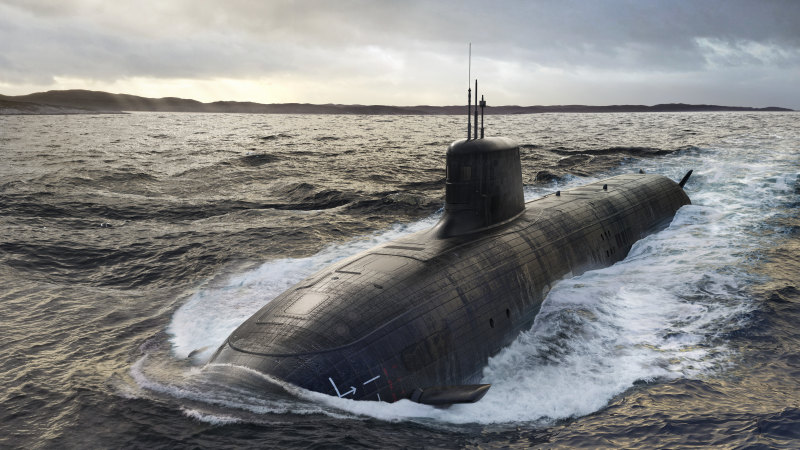
Concerns are mounting over the AUKUS alliance as British industry leaders urge a decisive and unified commitment to the critical defence project. With Prime Minister Anthony Albanese set to meet UK counterpart Sir Keir Starmer this week, experts warn that delays could lead to significant skills shortages and hinder the timely delivery of a new submarine fleet. The call for action comes amid fears that a Pentagon review might necessitate changes to this expansive project.
Financial Commitments and Industry Worries
Australia has pledged nearly $5 billion to support British industry in developing nuclear power plants for the new fleet. As construction progresses over the next decade, this figure is expected to rise significantly. National security experts have characterized the situation as an “existential battle” for both Australia and the UK, emphasizing the urgency of addressing potential delays.
Directing attention to the lack of clear demand signals, Andrew Kinniburgh, director-general of Make UK Defence, stated, “You can create as conducive an environment as you like, but if there are no demand signals, industry is not going to start investing.” He stressed the need for clarity from the three AUKUS nations regarding existing programs and new projects that would bolster the alliance.
The AUKUS pact, established in 2021, aims to foster cooperation among Australia, the UK, and the US, focusing on building nuclear-powered submarines and advancing defence science and technology. Kinniburgh noted that all three allies are grappling with severe skills shortages, particularly concerning the second pillar of the pact, which involves technological cooperation.
The Geopolitical Stakes
During a recent UK parliamentary inquiry, Sophia Gaston, a senior fellow at the Centre for Statecraft and National Security at King’s College London, described AUKUS as a vital political project addressing pressing geopolitical challenges. She urged that the initiative be viewed as a national mission, warning of dire consequences if the UK and its allies fail to secure the necessary skills and technologies to construct the new fleet.
“This is an active battle that is going to decide our future economic growth, our capacity to act with autonomy and our capacity to influence geopolitical outcomes,” Gaston told the committee.
Australia plans to acquire at least three US-built Virginia-class submarines in the early 2030s, with plans for five vessels utilizing the SSN-AUKUS design from the early 2040s, at an estimated cost of $368 billion over three decades. The project will utilize nuclear power systems developed by Rolls-Royce, which is set to receive approximately $5 billion from Australia to support workforce development.
The British timetable for constructing the new fleet hinges on the ability to build one new submarine every 18 months, but experts have raised concerns over the current rate of production. Each Astute-class submarine reportedly takes around 24 months to complete, raising questions about meeting future deadlines.
In light of these challenges, Dr. Sidharth Kaushal, a senior research fellow at the Royal United Services Institute, warned that delays in submarine construction could leave AUKUS members vulnerable. He cautioned that the US would face capability shortfalls in the 2030s as China expands its military reach, while the UK risks exposure to Russian threats.
“The risks to the UK are that, in the short term, we are looking at a trough in availability of nuclear-powered submarines,” he stated, highlighting immediate implications for NATO’s deterrence capabilities.
As the Pentagon continues its review, which has taken longer than initially anticipated, the urgency of a clear statement of support from the AUKUS partners has become increasingly critical. The review, originally expected to conclude within 30 days, is now projected to wrap up in the northern autumn. Reports indicate that the US administration has assured Deputy Prime Minister Richard Marles that the defence pact will remain intact.
Industry experts are calling for a unified public endorsement of AUKUS from Australia, the UK, and the US to bolster confidence as the project faces these mounting challenges. Without a concerted effort from all parties involved, the future of the AUKUS alliance and its ambitious goals may hang in the balance.







